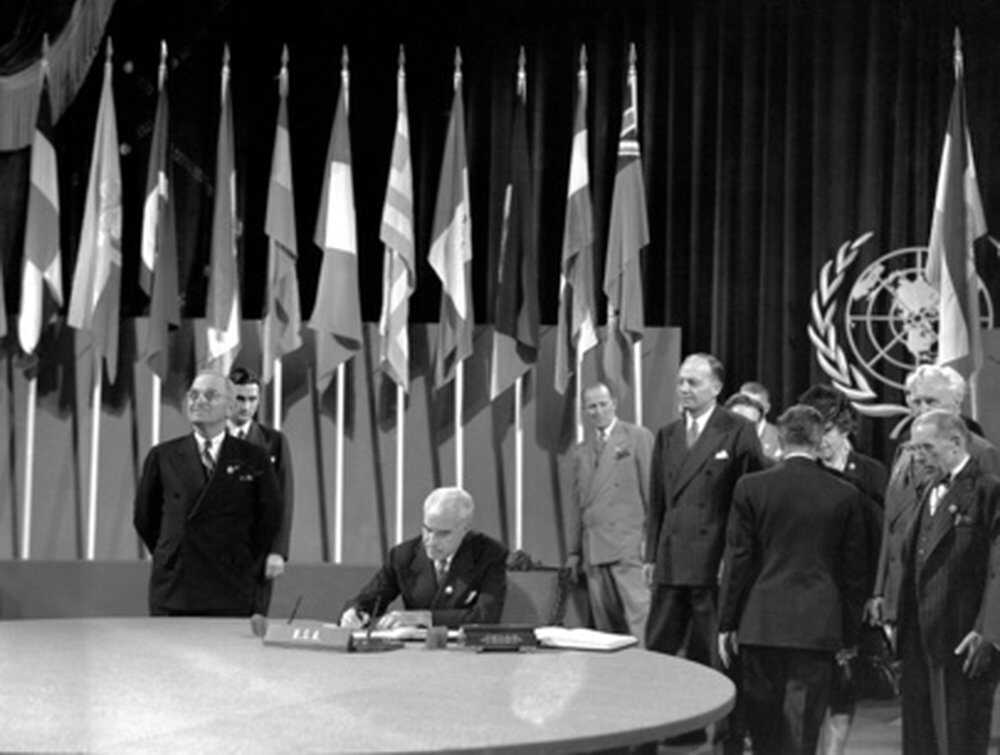January 1st 1942 – United Nations Created

In a pivotal moment in history, on January 1, 1942, President Franklin D. Roosevelt and British Prime Minister Winston Churchill made an indelible mark on the world by jointly issuing a momentous declaration known as the “United Nations.” This significant event unfolded against the backdrop of global turmoil, with representatives from 26 countries coming together to pledge their commitment to forging an international postwar peacekeeping organization.
The genesis of this declaration can be traced back to the Arcadia Conference, a seminal gathering that took place in Washington, D.C., commencing on December 22, 1941. This conference was not merely a diplomatic meeting but a profound discussion between two leaders, Roosevelt and Churchill, who recognized the imperative need for collaborative efforts in the face of unprecedented global challenges.
As Churchill crossed the Atlantic to engage in the Arcadia Conference, the world was engulfed in the flames of World War II. The Axis powers were unleashing devastation, and the Allies found themselves in a dire struggle for survival. Against this grim backdrop, Roosevelt and Churchill sought not only military coordination but a vision for a postwar world that would be free from the shackles of conflict.
The Arcadia Conference marked a convergence of minds, ideologies, and a shared determination to shape a different future. Roosevelt, guided by his visionary leadership, and Churchill, with his unyielding resolve, laid the groundwork for an international alliance that transcended immediate wartime objectives.
The resulting declaration, signed by representatives from diverse nations, laid out the principles and aspirations of what would eventually become the United Nations. It was not merely a treaty; it was a covenant, a solemn promise to strive for a world where nations could coexist peacefully, transcending the ravages of war.
The signatories recognized the need for a collective effort to maintain peace and security globally. They envisioned an organization that would facilitate dialogue, prevent conflicts, and promote international cooperation. The seeds of the United Nations were sown in this historic moment, as nations bound themselves to the noble cause of fostering a better world for generations to come.
The United Nations, as envisioned in the declaration, became a beacon of hope amid the darkness of war. Its establishment marked a paradigm shift in international relations, emphasizing diplomacy, dialogue, and collaboration over the destructive forces of war. The preamble of the declaration echoed a commitment to saving succeeding generations from the scourge of war, a commitment that resonates to this day.
In retrospect, the Arcadia Conference and the subsequent issuance of the United Nations declaration were pivotal milestones that shaped the postwar world order. The words articulated by Roosevelt and Churchill in the declaration reverberated through history, creating a foundation upon which the United Nations would be formally established on October 24, 1945.
The legacy of that momentous day in January 1942 endures in the form of the United Nations, an organization that has weathered the tests of time and continues to strive for global peace and cooperation. The Arcadia Conference stands as a testament to the power of collaboration, foresight, and the shared human aspiration for a better, more peaceful world.